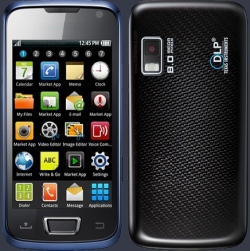
I’ve downloaded an episode of David Attenborough’s Frozen Planet in about a minute and viewed YouTube videos in the middle of London without a hint of buffering.
I’ve even tested a live broadcast using nothing but a laptop connected to a mobile phone network. All of this has been thanks to 4G – a technology which is already being rolled out in many parts of the world but won’t be widely available in the UK until 2013 at the earliest.
Two big 4G trials are underway at the moment. In London, O2 has launched a test network covering various parts of the centre of town, and soon out to Canary Wharf and the Docklands.
In Cornwall, BT and Everything Everywhere – formerly known as Orange and T-Mobile – have begun testing 4G under very different conditions. The aim there is to work out whether part of the spectrum which is being auctioned late next year will provide a mobile broadband alternative for people who struggle to get a decent service down a fixed line.
Now I can already hear the purists shouting that neither of these trials are "real 4G". They will point to the standards set out by the International Telecoms Union for the next generation of mobile networks and claim they do not match up. But I think most people will be more concerned to know what the new services promise – and how soon they will arrive.
